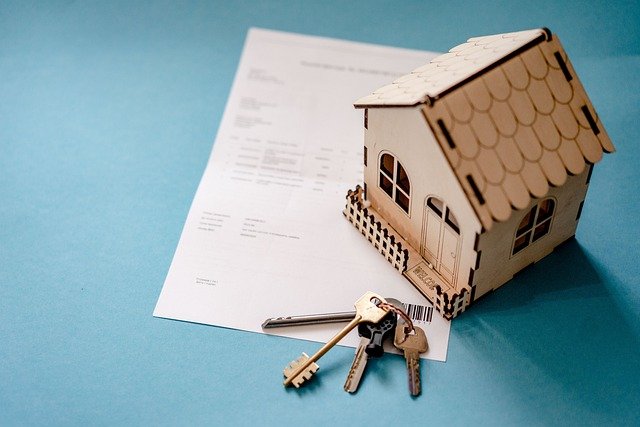How to Buy a Home Without a Bank Loan Through Rent-to-Own: Guide for South Africa
Buying a property in South Africa without relying on a bank loan is possible through rent-to-own agreements, which combine rental payments with the option to purchase the home later. This comprehensive guide explores how this system works, the advantages and risks involved, and what to look for in the contract. It’s a practical alternative for aspiring homeowners who may not qualify for traditional financing but want a path toward ownership.

How Rent-to-Own Property Agreements Work in South Africa
Rent-to-own agreements, also known as lease-to-own contracts, combine elements of rental and purchase agreements. Under this arrangement, tenants pay monthly rental fees while building equity toward eventual ownership. A portion of each monthly payment typically goes toward the future purchase price of the property.
The agreement usually spans two to five years, during which the tenant has the exclusive right to purchase the home at a predetermined price. This price is often set at the property’s current market value or includes a slight appreciation factor. The tenant must exercise their purchase option within the specified timeframe, or they forfeit their accumulated equity and the right to buy the property.
Property owners benefit from this arrangement by securing reliable tenants who have a vested interest in maintaining the property, while buyers gain time to improve their credit scores and save for a deposit without the pressure of immediate mortgage approval.
Advantages of Buying a Home Without Bank Financing
Rent-to-own agreements offer several compelling advantages for prospective homeowners. The most significant benefit is the ability to secure a home without immediate bank approval or a substantial deposit. This makes homeownership accessible to individuals who might otherwise wait years to qualify for traditional financing.
During the rental period, buyers can work on improving their credit scores, stabilizing their income, and saving additional funds for the eventual purchase. The predetermined purchase price also protects buyers from market price increases during the agreement period, potentially saving thousands of rands if property values rise.
Additionally, buyers can test-drive the property and neighborhood before committing to purchase, ensuring the home meets their long-term needs. Any improvements or maintenance performed during the rental period also benefits the buyer, as they’re working toward owning the property.
Legal Points to Check Before Signing a Rent-to-Own Contract
Before entering any rent-to-own agreement, several critical legal aspects require careful examination. The contract must clearly specify the purchase price, rental amount, and how much of each payment applies toward the eventual purchase. Ensure the agreement includes detailed property descriptions, condition assessments, and responsibility for maintenance and repairs.
Verify that the seller has clear title to the property and the legal right to enter into such agreements. The contract should outline consequences for defaulting on payments and circumstances under which either party can terminate the agreement. It’s essential to understand whether the purchase option is exclusive to you and what happens if you choose not to exercise it.
Consider having a qualified attorney review the contract before signing, as rent-to-own agreements can be complex and vary significantly in their terms and conditions. Ensure the agreement complies with South African property and consumer protection laws.
Potential Risks and How to Protect Yourself
While rent-to-own agreements offer opportunities, they also carry significant risks that require careful consideration. One major risk is the potential loss of all accumulated equity if you cannot complete the purchase or choose not to exercise your option. Unlike traditional rentals, you cannot recover the additional amounts paid toward the purchase price.
Property market fluctuations pose another risk. If property values decline significantly, you may find yourself committed to purchasing at above-market rates. Additionally, some unscrupulous sellers may use rent-to-own agreements as high-yield rental arrangements with no genuine intention of selling.
To protect yourself, conduct thorough due diligence on both the property and the seller. Obtain independent property valuations, inspect the home professionally, and verify the seller’s financial stability and reputation. Consider negotiating terms that allow for price adjustments based on market conditions or professional appraisals at the time of purchase.
Steps to Prepare for Finalizing the Home Purchase
Successful completion of a rent-to-own agreement requires careful preparation throughout the rental period. Begin by establishing a savings plan to accumulate funds for the final purchase, including transfer costs, legal fees, and any remaining balance after your accumulated equity is applied.
Work actively to improve your credit score by paying all bills on time, reducing existing debt, and avoiding new credit applications unless absolutely necessary. Regularly review your credit report and address any errors or negative items that could impact your mortgage application.
As the purchase date approaches, shop around for the best mortgage rates and terms from various lenders. Pre-approval for financing can provide confidence and negotiating power during the final purchase process. Ensure you have all necessary documentation, including proof of income, bank statements, and employment verification letters.
| Service Provider | Type of Service | Typical Agreement Terms | Estimated Monthly Premium |
|---|---|---|---|
| Private Property Owners | Direct Rent-to-Own | 2-5 years, 10-20% equity portion | R8,000 - R25,000 |
| Property Investment Companies | Managed Programs | 3-7 years, 15-25% equity portion | R12,000 - R35,000 |
| Estate Agencies | Facilitated Agreements | 2-4 years, 5-15% equity portion | R10,000 - R30,000 |
Prices, rates, or cost estimates mentioned in this article are based on the latest available information but may change over time. Independent research is advised before making financial decisions.
Rent-to-own agreements represent a valuable alternative for South Africans seeking homeownership without traditional bank financing. While these arrangements offer significant advantages, including accessibility and flexibility, they require careful evaluation and legal review. Success depends on thorough preparation, understanding the risks involved, and working systematically toward improving your financial position during the rental period. With proper planning and due diligence, rent-to-own agreements can provide a practical pathway to achieving your homeownership goals in South Africa’s challenging property market.




